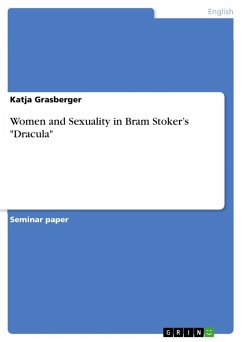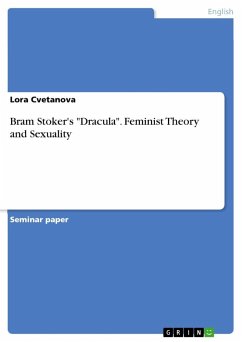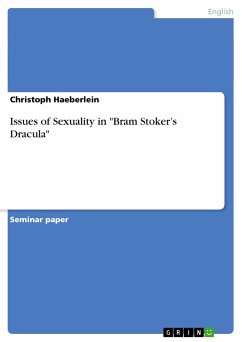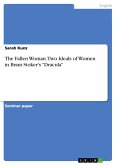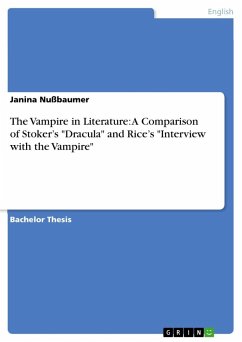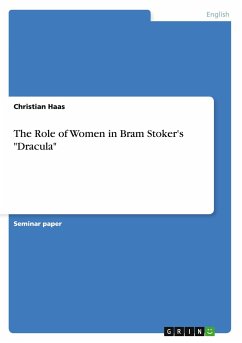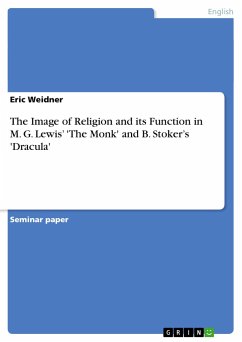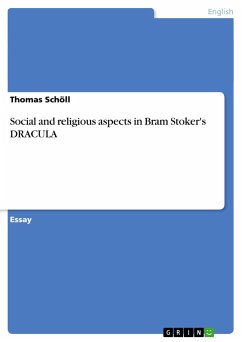Seminar paper from the year 2014 in the subject English Language and Literature Studies - Literature, grade: 1,7, University of Bonn (Anglistik), course: Issues in Literature & Culture: Gothic fiction, language: English, abstract: For decades stories and sagas have told us to be aware of the vampire. Bram Stokers "Dracula" has never stopped being printed since it was published in 1897 and has become the figurehead for vampirism. The vampire has always been an object of terror and at the same time he has fascinated us. Indeed, vampirism is very often associated with sexuality, especially with repressed sexuality. Williamson points out that Dracula is written in the Victorian age which is "considered to be one of sexual repression and the vampire represents the return of the (masculine) repressed". Craft even speaks of "sexual energy" which is closely connected to vampirism. Nevertheless, there are other opinions about that period. Elaine Showalter argues that Dracula was also written in a time of "sexual anarchy" (cf Showalter 3) and that this was a decade of alternative definitions of being male or female and also a time where the 'New Woman' was invented.That Stoker's" Dracula" has often been interpreted and analyzed for its sexual contents is due to the "powerful sexual charge" which Murray claims runs throughout the novel (cf Murray 200f; Kline 5f). There is no agreement "as to what kind of sexuality is present in the novel", but Spencer points out that among them there is no doubt that "a given sexuality [...] is repressed and displaced throughout the text" (cf Spencer 197). Of course, sexuality is not explicitly described and rather masked, therefore the interpretations of these symbols are different. This paper seeks to analyze the depiction of sexual women in the novel on the basis of particular plots.
Hinweis: Dieser Artikel kann nur an eine deutsche Lieferadresse ausgeliefert werden.
Hinweis: Dieser Artikel kann nur an eine deutsche Lieferadresse ausgeliefert werden.

